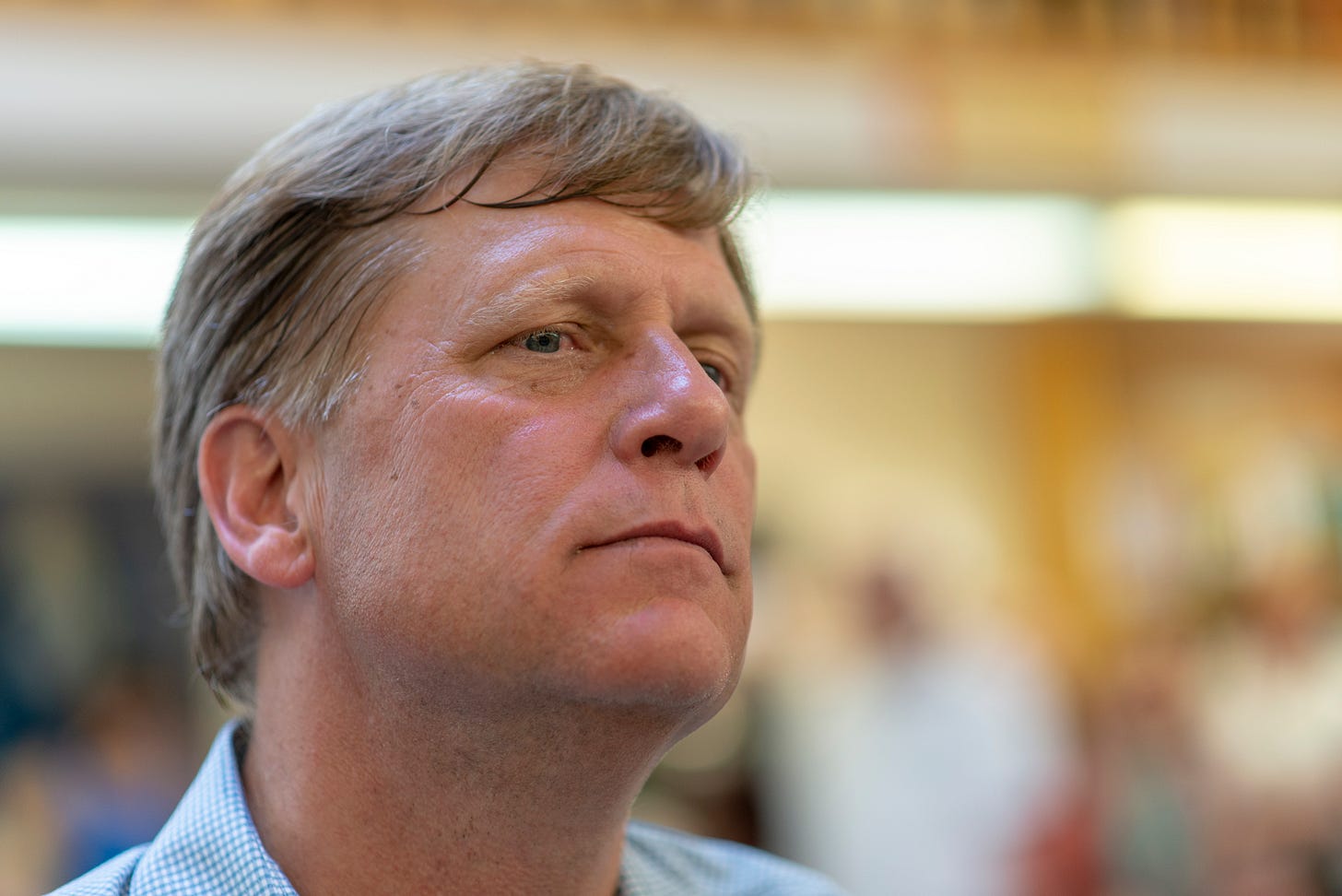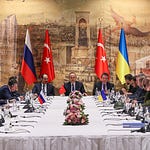
Michael McFaul, already distinguished as a former ambassador to Russia and professor of political science at Stanford, has achieved a new milestone by becoming a much-reviled social media personality. On March 2, he tweet out “there are no more ‘innocent’ ‘neutral’ Russians anymore.” He subsequently apologized for the tweet and deleted it.


On March 12, McFaul went on The Rachel Maddow Show and said, “One difference between Putin and Hitler is that Hitler didn’t kill ethnic Germans, German-speaking people. Putin slaughters the very people he said he has come to liberate.” When that comment was posted by Maddowblog, it drew wide criticism. McFaul apologized for the remark and The Rachel Maddow Show deleted the tweet carrying the clip and also apologized.
But McFaul is more than an undiplomatic diplomat. As David Klion showed in a splendid 2018 profile in The Baffler, McFaul is the very incarnation of decades of failed American policy. In his profile, David writes:
McFaul had a ringside seat to all of this [the end of the Soviet Union] as a grad student in international relations and a Fulbright scholar in Moscow in 1990-1991, where he ended up volunteering for the National Democratic Institute (NDI) and conducting seminars to train Russia’s earnest young would-be democrats. He even met a young Vladimir Putin in this period. “To paraphrase Martin Luther King Jr., the arc of Russian history was at last bending toward justice, freedom, and democracy,” he writes. “That put the KGB on the wrong side of history. Putin’s only chance to survive was to join the democrats, or so I believed at the time.” After the Soviet Union finally collapsed, McFaul opened NDI’s Moscow office. “We were not ‘meddling’ in Russia’s internal affairs, but invited guests of the Russian government,” he reassures us.
“In the summer of 1992, I felt like a rock star,” McFaul boasts. To extend this metaphor, Russia over the next few years resembled Altamont. McFaul acknowledges his team’s failure to secure democracy, noting Yeltsin’s authoritarian strain and self-destructive personal habits, the rise of a corrupt oligarchy, and the growing appeal of far-right nationalism. But McFaul more or less shrugs off the vast scale of human suffering caused by the firesale privatization of Russia’s economy, which he reduces to a few bland sentences about inflation and deficits.
Since McFaul is in the news, I thought it would be a good time to talk to David about the career of this emblematic figure.
At the last part of the podcast (starting at the 1:05 mark), David and I revisit his profile of Russian oligarch Roman Abramovich. We take up the current efforts of institutions that have received Abramovich’s largess to defend him from sanctions. We also discuss this New York Times profile of Abramovich, which leads us to a conversation about media ethics and the Times’ much-criticized habit of re-reporting stories from other outlets without due credit. Does that critique apply here? Tune in and find out.
(Post edited by Emily M. Keeler)
Share and Subscribe
If you enjoyed this podcast, please share:
Or subscribe:














Share this post